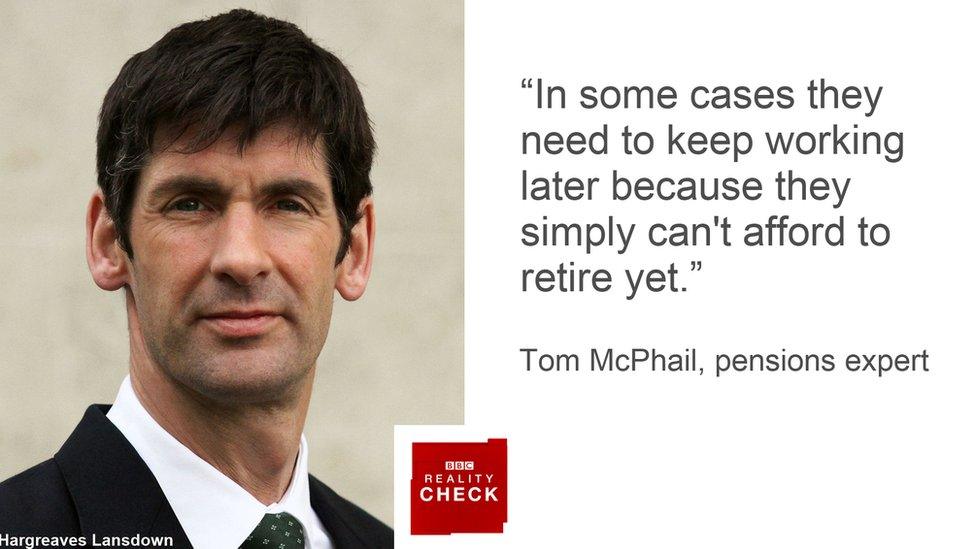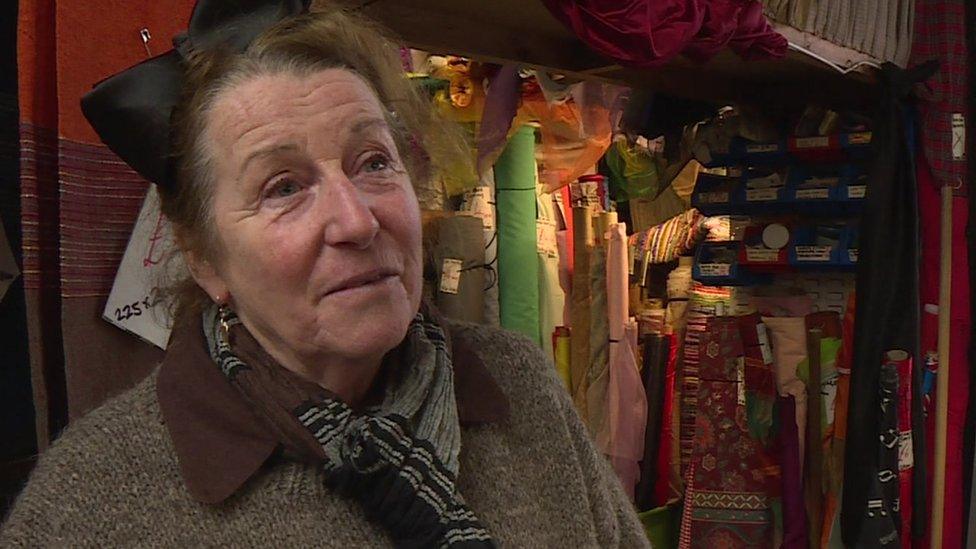Reality Check: Is lack of cash making women work past 70?
- Published

The claim: The increase in women working in their 70s is because some of them can't afford to retire.
Reality Check verdict: Although some women keep working out of choice, it is also likely that others are doing so because increased life expectancy and an inadequate pension pot means they don't have enough money to retire on.
The proportion of women working into their 70s has doubled in the past four years, to 11%, according to official figures, external.
That works out as about 150,000 women still working into their mid-70s.
Although the growth has been strong, there is still a higher proportion of men working into their 70s, at 15.5%.
But are some women continuing to work later in life because they want to, or because they cannot afford to retire?
Life expectancy has been steadily climbing in the UK, and a woman who was 65 in 2015 could expect to live a further 20.9 years, on average, according to the Office for National Statistics (ONS), external.
A longer life expectancy is, of course, good news, but also means this generation requires a higher level of savings to cover living expenses, not to mention possible care costs.
The Joseph Rowntree Foundation puts the minimum income standard, external for pensioners at £186.77 a week - the equivalent of £9,712 a year.
But a pensioner retiring after April 6 this year and relying purely on their state pension will have an income of £8,300 per year - £1,400 less than the Joseph Rowntree estimate.
This means retirees also need to have built up their own pension pot.
A survey from the pension provider Aegon suggests the average woman has less than half of the retirement savings an average man has.
It also indicated the average woman hoped to retire at 64, compared with 65 for men.
There are a number of factors behind this disparity.
Women have a higher life expectancy than men, and on average earn less over the course of their working lifetimes as they are more likely to have taken time out from work for caring responsibilities.
What's more, one in three women currently earns less than £10,000, which is the threshold at which they are eligible for automatic enrolment into a private pension scheme.
Changes to the state pension age have also played a part.
Until 1995, women expected to draw their state pensions at 60; men at 65.
But changes made by the 1995 Pensions Act meant the pension ages of both men and women would be 65 by 2020.
In 2011, this changed again, meaning some women born between April 1951 and 1960 are now facing a pension age of 66.
The Cridland Report on the state pension age is due out on Thursday.
Action group Women Against State Pension Inequality (Waspi) was set up to campaign for transitional arrangements for women born in the 1950s who have been negatively affected by changes in state pension law.
The group says hundreds of thousands of women are suffering from financial hardship as a result of the changes, with not enough time to re-plan for their retirement.



- Published22 March 2017
